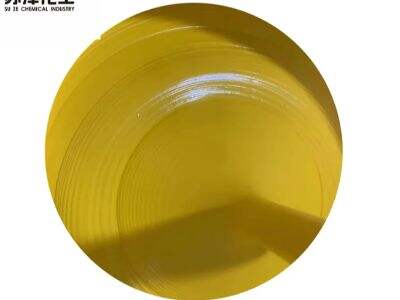Have you heard of dibenzoyl peroxide and benzoyl peroxide, friends? Sure, they SOUND big and confusing, but they are majorly important when it comes to caring for your skin. The skin is something that requires particular attention, especially when it comes to issues like acne. Today we will explore how dibenzoyl peroxide differs from benzoyl peroxide, how they work to treat acne, and what side effects you should be aware of. So this will guide you in determining what product is best for your skin’s needs.
What are differences between dibenzoyl peroxide and benzoyl peroxide?
Let's start with the basics. It belongs to a class of ingredients that are widely used in skin products, particularly those targeting acne. They may sound similar, but these two types of verbs are in fact quite different, in some notable ways. Dibenzoyl peroxide is a softer peroxide, i.e. it is less harsh on your skin. That makes it a great option for those with sensitive skin. Benzoyl peroxide, on the other hand, is more potent, and is the active ingredient in many popular acne medications. It's more powerful, so it can be very effective in helping to clear up breakouts, but it can also be harsher on the skin.
How do dibenzoyl peroxide and benzoyl peroxide assist to soothe acne?
Both dibenzoyl peroxide and benzoyl peroxide can be extremely beneficial when it comes to fighting acne. Known for its ability to kill acne-causing bacteria, as well as decrease swelling and redness, benzoyl-peroxide. That’s why it is often used for treating breakouts. It hustles to eliminate the issue, which makes it a powerful partner in your battle against acne. Dibenzoyl peroxide, on the other hand, assists in clearing clogged pores and removing dead skin cells. Doing this may also help prevent new acne from developing. Dibenzoyl peroxide, on the other hand is gentler on sensitive skin but is not as potent as Dibenzoyl Peroxide.
How to use dibenzoyl peroxide and benzoyl peroxide in your skin-care routine
Now that we know how these ingredients work to address acne, let’s discuss how to incorporate them into your daily skincare regimen. You can discover all of these valuable elements in a range of (cleansers, spot treatments, creams) products created for acne. If you choose to use a product containing benzoyl peroxide, it's super crucial to read and follow the directions closely. Use a low dose to prevent any irritation or dryness in your skin. If you see any problems, you can always back off. If you’re still seeking something gentler that can both prevent and treat acne without irritating the skin too much, dibenzoyl peroxide can also be an excellent option.
What side effects do you need to know about?
Although dibenzoyl peroxide and benzoyl peroxide can work very well as acne treatments, you should know of possible side effects. Benzoyl Peroxide can cause skin dryness, redness and flaking, particularly when used in large quantities. This is why starting at a lower strength is a good idea. You may increase the strength over time, as tolerated by your skin, but always monitor your skin’s response. Dibenzoyl peroxide is often milder, though it can cause irritation in some — especially those with sensitive skin. When trying new products be sure to patch test them on a small section of your skin. If you are concerned, or your skin does not deal well with it, consult a dermatologist for the best advice.
I can select dibenzoyl peroxide over benzoyl peroxide.
In choosing between dibenzoyl peroxide and benzoyl peroxide for your skin care needs, it really comes down to your individual skin type and the concerns you are trying to address. If your skin is sensitive and you want a gentler option, then dibenzoyl peroxide may be the right choice for you. It helps to keep your skin clear without being overly aggressive. But if you're struggling with stubborn breakouts and require a more intense treatment, dibenzoyl peroxide might be the right choice for you. As always, start with a lower concentration, patch test any new products, and be consistent about your skincare routine. For your skin to reap the best benefits, consistency is key.
Table of Contents
- What are differences between dibenzoyl peroxide and benzoyl peroxide?
- How do dibenzoyl peroxide and benzoyl peroxide assist to soothe acne?
- How to use dibenzoyl peroxide and benzoyl peroxide in your skin-care routine
- What side effects do you need to know about?
- I can select dibenzoyl peroxide over benzoyl peroxide.



